Alternative Education Provision
We take great pride in introducing our new Alternative Education Provision to students who have faced permanent exclusion from traditional mainstream educational settings, ensuring that they receive a high-quality education.
Refer a student
Our Mission in Alternative Education
We exist to educate children and adults to help them build a better future so that they can find solutions to the world’s biggest problems through code.
We adhere to an approach centered around students, customising our programs to meet their individual needs. Our commitment involves delivering high-quality education, promoting lifelong learning, nurturing inclusivity, and fostering a strong sense of community.
What makes us different:
At the School of Coding & AI, our array of courses spans Coding, Robotics, Tech Education, Business and Entrepreneurship, along with subjects such as English, Math, Science, Humanities, Creativity, and PSHE Personal Wellbeing.
Wherever a student’s interests or aspirations lie, we undoubtedly offer something to facilitate their learning and development.

School Term Time Dates 2025
Term Time: Monday 6 January 2025 to Friday 14 February 2025
Half term: Monday 17 February 2025 to Friday 21 February 2025
Term Time: Monday 24 February 2025 to Friday 11 April 2025
Term Time: Monday 28 April 2025 to Friday 23 May 2025
Half term: Monday 26 May 2025 to Friday 30 May 2025
Term Time: Monday 2 June 2025 to Monday 21 July 2025
Term Time: Monday 1 September 2025 to Friday 24 October 2025
Half term: Monday 27 October 2025 to Friday 31 October 2025
Term Time: Monday 3 November 2025 to Friday 19 December 2025
Courses We Offer

English - Functional Skills and OCR GCSE
with essential communication skills, enhances critical thinking, improves employability, nurtures cultural understanding, and establishes a robust foundation for continuous learning and development. Functional Skills Level 1 – 2 further enhances employability, laying a solid foundation for further education and career success. Students will have the opportunity to study GCSE English Language which cultivates advanced language skills, critical analysis, and effective communication, enhancing academic and professional success. It provides a strong foundation for higher education, careers, and personal development.

Mathematics - Functional Skills and OCR GCSE
employability, and a foundation for further education and career success. Level 1-3 empowers students with practical problemsolving abilities, boosting confidence, and lays groundwork for future academic pursuits and varied career opportunities. The comprehensive GCSE curriculum ensures a well-rounded understanding with specific objectives for topics, including arithmetic, percentages, geometry, and statistics. With organised content and exam practice sessions, the courses impact students by preparing them for real-world applications and fostering proficiency in mathematical principles throughout their academic journey.

OCR Computer Science
and organised lessons, we position our students for optimal success in achieving higher grades.

NOCN Personal Well Being Level 1
(Alternative Education Provision)
It promotes a balanced lifestyle through exercise and a healthy diet. Additionally, it addresses isolation, selfesteem, bullying, stres management, healthy relationships, sexual health, and body image, providing a holistic approach to well-being for students.

NOCN Certified Digital Skills
(Alternative Education Provision)
Digital Skills 4 Life refers to the set of competencies and knowledge that students need to navigate and thrive in the digital age. These skills are increasingly crucial in various aspects of personal, professional, and societal life. Our digital money skills courses gives students the ability to manage and use digital forms of currency and financial services. Developing proficiency in digital money skills comes with various benefits.
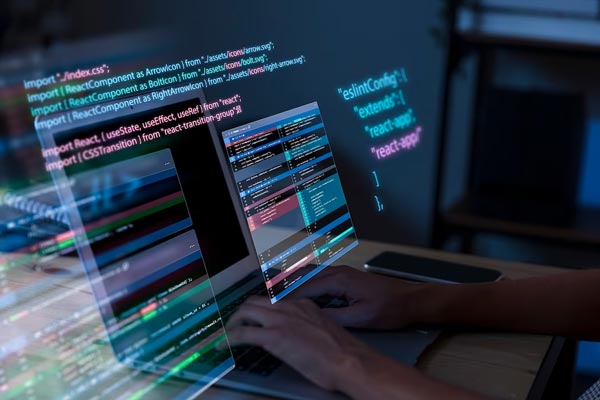
NOCN Certified Python Programming
(Alternative Education Provision)
software, automated tasks and conduct data analysis. Python is your friendly guide on this adventure – its easy-to-read commands make it an ideal starting point. Whether you’re shaping calculations, crafting games, or exploring the web, Python empowers you to turn ideas into reality.

NOCN Certified Java Programming
(Alternative Education Provision)
while fostering their ability to create functional applications across various domains. The course covers essential topics, from the basics of getting started and working with variables, input, and decision-making constructs like IF statements and Switch Case, to more advanced topics like loops, arrays, lists, and reading and writing data to files. In addition, the course explores the exciting world of Graphics, enabling students to create dynamic and visually engaging applications. The ultimate objective of this course is to prepare students for a final assessment where they can apply their knowledge and skills to develop a fully functional Java application, showcasing their ability to work with diverse.

NOCN Certified Entrepreneurship
(Alternative Education Provision)
through real-world modules and access to our CEO, Manny Atwal, who shares insights from his journey in founding of School of Coding & AI. This program covers entrepreneurship and digital entrepreneurship which consists of critical thinking, financial literacy, resilience, and risk management, fostering initiative and self reliance for real-world success. These skills are transferable to enhance employability in personal finance, decision-making, and leadership. The course includes six modules assessed through coursework and presentations, concluding with a Year 11 work experience placement, with pass or fail outcomes for each module.
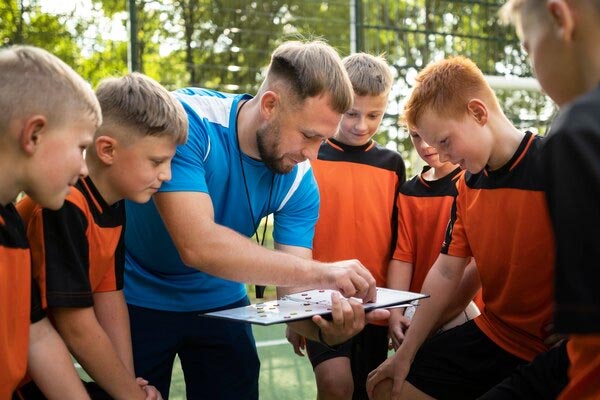
Pearson Sports Level 1
(Alternative Education Provision)
and develop their skills for progression to further learning and, ultimately, to employment. The Award is designed for learners who may want to study a sector unit and plan their next steps by completing the Developing a Personal Progression Plan unit. BTEC Sports in years 9-11 provides students with a comprehensive understanding of sports science, coaching, and fitness. This practical and theoretical knowledge not only supports physical well-being but also nurtures teamwork, leadership, and communication skills. It prepares students for diverse careers in the sports industry, promoting a holistic approach to health and fostering a lifelong appreciation for physical activity and its impact on overall wellbeing.

Pearson Work Skills Level 1
(Alternative Education Provision)
that contribute to both personal and professional development. They will gain key skills such as career readiness, industry relevant knowledge, hands on experience, networking opportunities and more! It’s important for students to choose courses that align with their interests and future career goals, ensuring that they derive maximum benefit from the experience.

Humanities
(Alternative Education Provision)
Learning history in Years 9 and 10 fosters critical thinking, analytical skills, and a deeper understanding of societal changes during the Industrial Revolution. It also enhances research and presentation abilities through group projects, promoting a comprehensive grasp of historical concepts. Studying geography in Years 9 and 10 cultivates critical thinking and analytical skills through topics like transport, hydrology, tourism, and coastal studies. It promotes a holistic understanding of the world’s physical and human landscapes.

Science
(Alternative Education Provision)
dynamic exploration of biology, chemistry, physics, and environmental science, fostering practical skills and a deep understanding of real-world applications in each course. Science Functional Skills offers students crucial benefits by cultivating analytical thinking and problem-solving abilities. These skills not only contribute to academic success but also empower students with practical knowledge applicable in everyday life. Understanding scientific concepts enhances their awareness of the natural world, fostering a foundation for further studies.

Creative including Art and Drama
(Alternative Education Provision)
These subjects cultivate communication skills, empathy, and an appreciation for diverse perspectives. Engaging in artistic and dramatic endeavors enhances confidence, adaptability, and the ability to collaborate, crucial for personal development. Moreover, it provides a platform for exploring cultural awareness and societal issues, contributing to well-rounded individuals prepared for various academic challenges.
CodingCourses

Beginner Scratch
Students learn looping, conditional logic, variables and event-driven code in a creative way through sprite animation projects. Foundational computational skills are built.

Intermediate Scratch
Concepts like cloning, scoring, timers and keyboard input are covered. Project design is scaffolded to introduce core concepts in a challenging yet supported environment. Problem-solving abilities expand.

Advanced Scratch
Object-oriented coding, lists, file handling and advanced graphical effects are covered. Project planning is self-directed with teachers providing feedback and support. Portfolios highlight mastery of computational concepts for further study.
Scratch
Python

Python Foundation Course (NOCN Certified)
Concepts are taught through short interactive programs using visualizations and games. Formatting, debugging and functions are also covered. Programming foundations are built in a low-risk way.

Python Intermediate Course (NOCN Certified)
Topics include list manipulation, file input/output, defining classes and objects. Problem-solving through game or simulation projects applies growing expertise. Refactoring and modular code organization are emphasized.
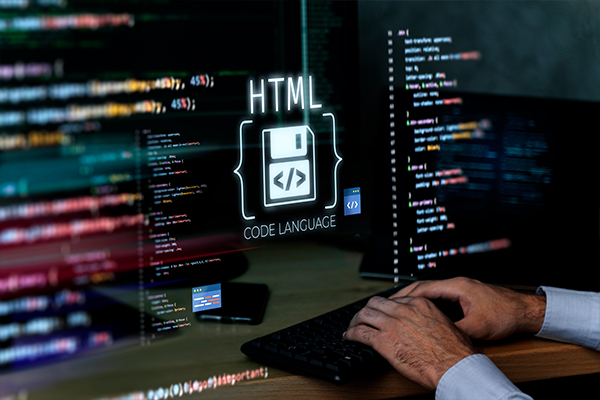
Advanced Python (NOCN Certified)
Complex data types, recursion, inheritance, data visualization, databases and algorithms are covered. Students demonstrate mastery through open-ended applications using object-oriented design principles. Portfolios showcase advancement towards cognitive skills for further.

Beginner (NOCN Certified)
scalability. It’s commonly used in various domains, including web development, mobile app development, enterprise software, and game development. If you’re new to programming, Java is an excellent language to start with due to its straightforward syntax and extensive community support.

Intermediate (NOCN Certified)
more advanced concepts and techniques. In this intermediate-level guide, we’ll cover topics such as object-oriented programming principles, exception handling, file I/O, collections, and more, to help you further enhance your Java programming skills.

Advance (NOCN Certified)
advanced concepts and techniques that will elevate your Java skills to new heights. From advanced data structures and algorithms to design patterns and performance optimization, you’ll gain a deeper understanding of Java and its capabilities.
Java Programming
Safeguarding our students and staff
At our centers, we take safeguarding very seriously and our commitment to safety extends to every member of our team, including our office staff. All of our staff members are enhanced DBS checked and rigorously trained in safeguarding procedures to ensure the well-being and security of everyone in our care.
Alternative Education Provision Policies

SEND Provision
Our Alternative Education Provision is designed to provide personalised and tailored support for students with SEND. We recognise the unique learning needs of each individual and implement strategies to address those needs effectively. We ensure an inclusive learning environment is experienced that embraces diversity. We prioritise creating a space where all students, regardless of their abilities or challenges, feel valued and included. Our staff undergoes specialised training in supporting students with SEND. This training equips them with the necessary skills and knowledge to cater to a diverse range of learning requirements, fostering an environment of understanding and empathy. Students with SEND benefit from individualised learning plans that are crafted in collaboration with educators, parents, and specialists. These plans outline specific goals, accommodations, and support strategies tailored to each student’s unique needs. We adopt a multidisciplinary approach, involving collaboration between teachers, special education professionals, and support staff. This collaborative effort ensures a comprehensive and holistic support system for students with SEND.
Our Alternative Education Provision is equipped with accessible resources and technology to enhance the learning experience for students with different abilities. This includes assistive technologies, modified materials, and additional resources to facilitate effective learning. We implement a systematic approach to monitor the progress of students with SEND. Regular assessments and evaluations help us track their development, adjust support strategies as needed, and celebrate their achievements. We are committed to continuous improvement in our SEND provision. Regular reviews, feedback mechanisms, and staying informed about the latest advancements in special education contribute to an evolving and responsive Alternative Education Provision for students with SEND.
Our Alternative Education Provision Team
Meet our highly experienced team who define our expertise.
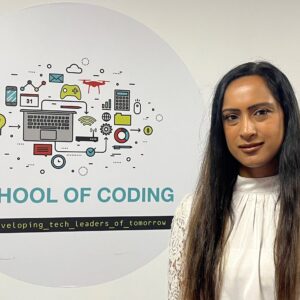
Sandeep Athwal
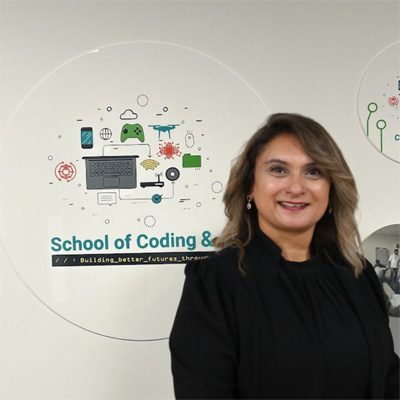
Suki Gill
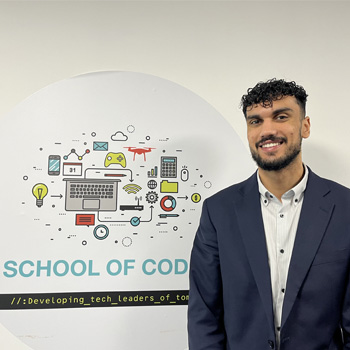
Cameron Atwal
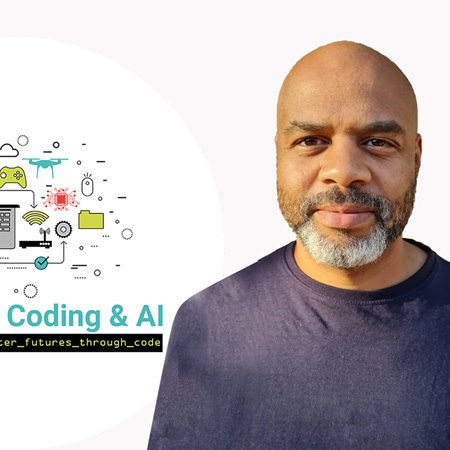
Tokunbo Sode

Nina Bhambra
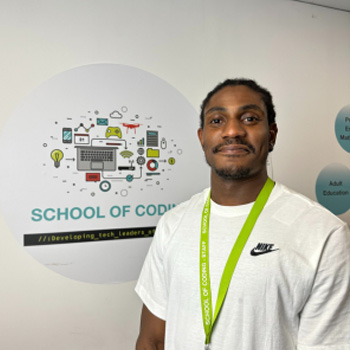
Cavin Wright
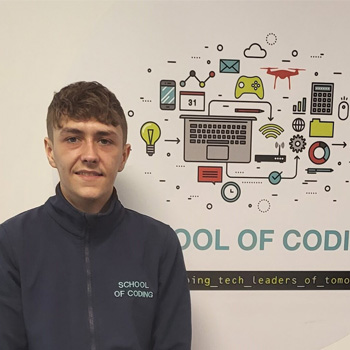
Kyle Cadwallader
Online & Classroom based at our Innovation Learning Centres
Classroom learning provides face-to-face interaction between students and instructors, fostering a dynamic and engaging environment. This direct interaction allows for immediate feedback, discussions, and collaborative activities. Online courses often allow learners to progress at their own pace. Students can review materials, complete assignments, and participate in discussions based on their individual learning speeds and preferences.
Enroll Now!
Please fill out the form and we will contact you.
Get in Touch
Connect with us
We help governments across the UK and 11 European countries to build strategies and methodologies to implement tech education into schools, youth and adult education. This helps countries become more innovative and reduces unemployment, whilst building the workforce for the future.
- 8 Newton Court, Pendeford Business Park, Wolverhampton, WV9 5HB
- 01902 509 209
- [email protected]
School of Coding Ltd is a company registered in England & Wales. Registration number 10808021
Registered office: Unit 8 Newton Court, Pendeford Business Park, Wolverhampton, WV9 5HB


